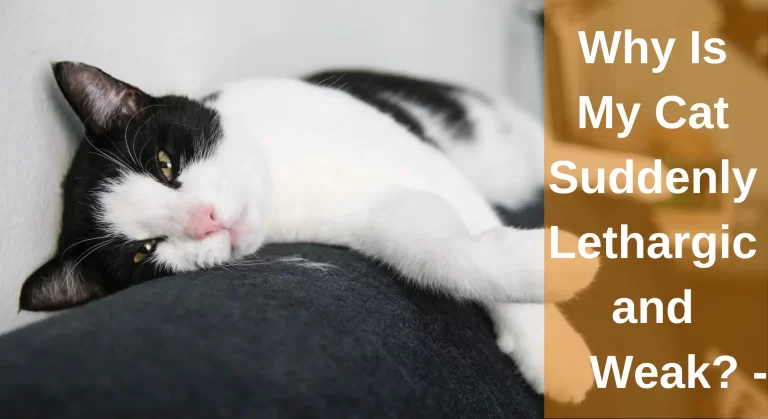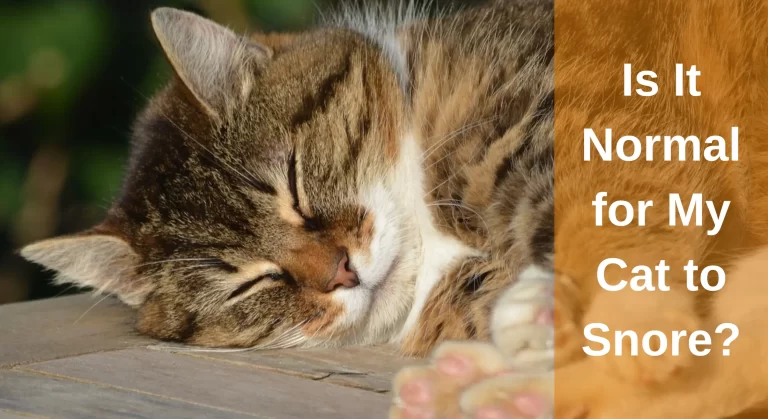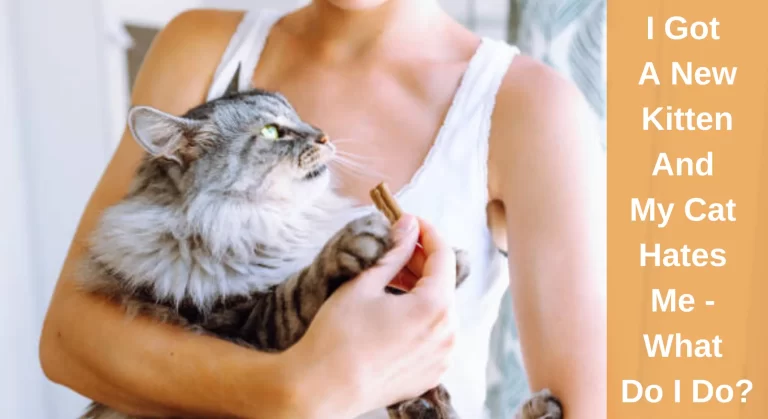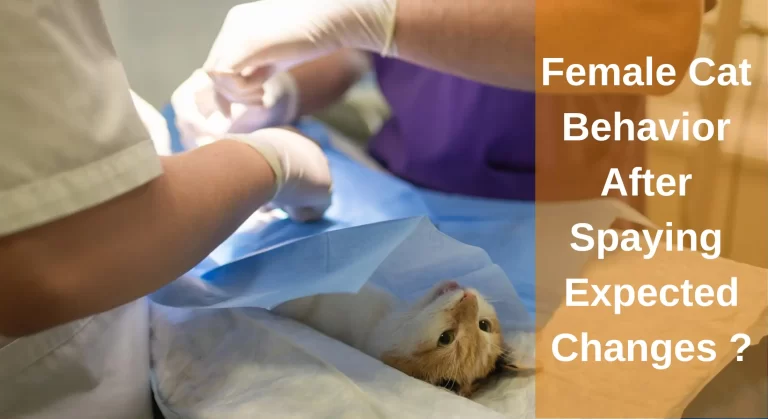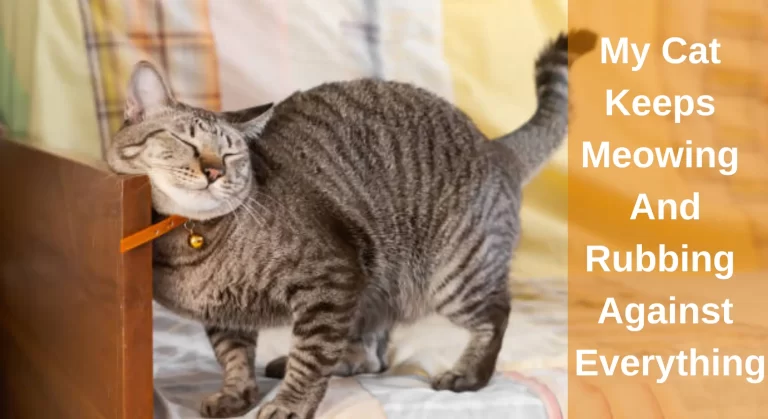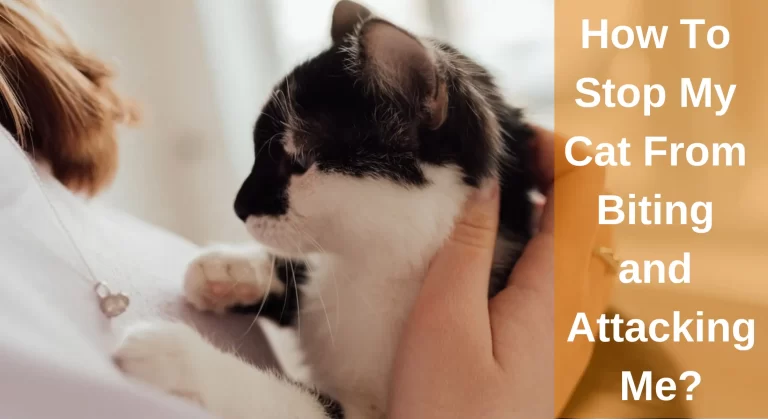Why Do Cats Act Weird When You Scratch the Base of Their Tail? [Explained]
When scratched, cats react abnormally due to a cluster of extremely sensitive nerve endings near the base of the tail. Initial gentle pats on the tail could be comforting, but frequent pats on the tail might be uncomfortable or too stimulating. This scratching might be an approximation of a sensual response from a female.
From a distance, our feline friends may seem rushed or agitated, but closer inspection reveals that their actions make more sense. Why do cats behave differently when their tail bases are scratched? The reasons are explained in this article.
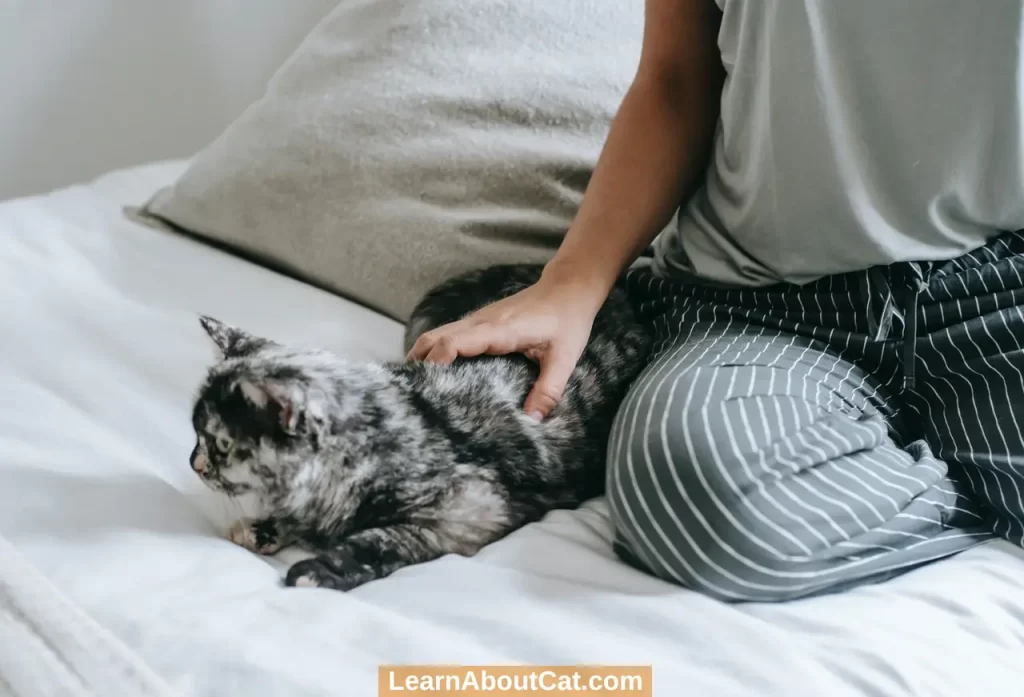
What Kind of Weird Response You Could See?
The “safe zones” of the cat’s chin and ears may receive a little scratch that might turn into a deep purr and encompassing slumber. However, this relaxing response takes an unexpected turn once the tail base becomes your main target. This “weird” response might be understated or attention-getting, such as:
- Persistent
- High-pitched vocalisations
- Building up their butt
- Uncontrollably caressing her side or “licking” the air
- Falling to the floor
- Turning around to bite or nibble at your hand
- A rippling feeling under the skin of the back and marching or seeming to stroll in place.
Even those who are highly adept at “interpreting” cat language will have a hard time understanding this strange language. What does the raised butt indicate? Should you persist or give up completely? Do you tend toward friendliness or hostility? These are all valid questions. The appropriate reaction will depend on your cat’s temperament, level of sensitivity, and territorial instincts.
Since everyone of our animal friends is unique, some cats may like having their lower backs scratched while others may demand that you immediately stop. As a result, every cat will respond to being scratched differently. It depends on your cat.
Reasons Why Do Cats Act Weird When You Scratch the Base of Their Tail
Extremely Sensitive Nerves
While drifting off to sleep or curling up next to their favourite person on the sofa, many cats like having their tails softly caressed. But with time, the mild tickling might transform into painful overstimulation. The base of a cat’s tail, which extends 30.5 cm from its spine, is home to a significant number of nerve endings. When scraped repeatedly or violently, these sensitive nerve receptors may feel pain or tension.
The male climbs the female tomcat from behind in readiness for mating, striking the delicate nerves near the base of her tail. At this time, the female’s natural response is to lift her rear up in the air. Possibly, she isn’t even consciously considering doing this; the inclination is more subliminal. This raised-rear stance facilitates more mating and makes it simpler.
Playful Mood or Enjoying
Since the base of a cat’s tail is stimulated during mating, she could lift her rear in the air as an indication that you’re hitting the right spot. This tail tickles will undoubtedly elicit some type of thrill and pleasure, even if not sexually. Consequently, continue scratching this area as long as your cat seems at ease and content while you’re doing so.
When you pet a cat, it purrs to let you know how much joy they are having. They obviously enjoy themselves when they produce sounds like purring.
They are Transmitting their Scent
Cats will rub their faces, knead their paws, and scrape their claws on items to disseminate their pheromones around their house and establish their territory. Cats roll about and flop down in front of you, leaving their scent on the ground. You won’t be able to smell them since only cats are able to recognise these pheromones. By absorbing the pheromones, you might help your cat spread them around your home.
It Reminds them of Their Mother
Not just mating but also a sensitive cluster of nerves on their lower backs can affect a kitten’s behaviour. A kitten’s back has a sensitive nerve region that causes it to lift its rear when its mother grooms it. This response is similar to mating, but it serves a different purpose.
This also explains why both male and female cats behave in such a strange way. Mother cats lick the anal canals of their kittens to encourage bowel movements and aid with digesting.
Check Out: Why Do Cats Chase Their Tail? Things You Need to Know
Why is it that Cats Enjoy Having the Tip of their Tails Scratched?
Cats may be the only mammal that can actually withstand hours of cuddling. I’m aware that bears enjoy having the backs of sturdy tree trunks scraped, but I doubt I’d survive the ordeal. On the other hand, my cats enjoy having their tail bases petted the most.
Understanding our cats’ preferences is crucial, but you may also be able to better understand their needs if you know why they like particular items.
If they elevate their rear, it can be a good sign, but if they start acting even wilder, it’s time to quit the tail scratching. Here are some potential reasons why they may not like being petted in this way, as well as what you should do.
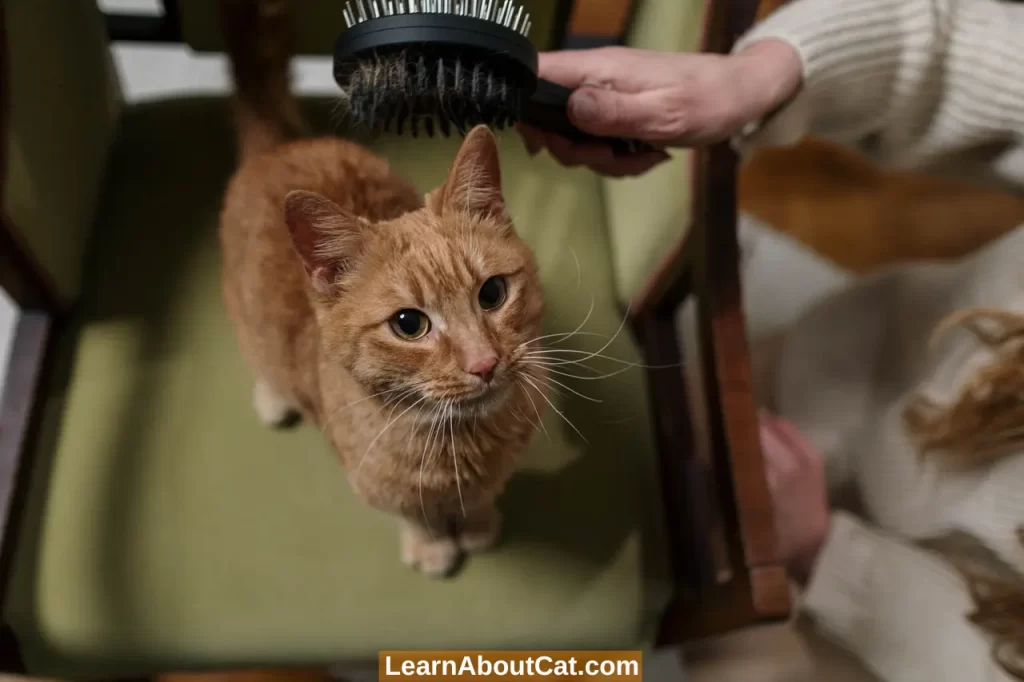
Female Behaviour
Male cats, according to some cat parents, don’t act as well at the base of the tail as do female cats. It is especially related to the behaviour of intact female cats during mating.
You could see that your cat acts differently during estrus if she is old enough to mate. She could be noisier and cuddlier than normal, demanding pets more frequently, and clamouring for your attention.
A kitten’s behaviour
When your cat was a kitten and their mother brushed them, they may have developed a sensitive back. Due to the fact that cats carry over parts of their juvenile behaviours into maturity, the raised back may represent an adverse reaction to their mother’s grooming.
You’re Hitting the Right Spot
The primary reason your cat lifts its butt when you scratch its back is that they like it. According to research, in order to touch your cat, especially the base of their tail, you must have a very strong link with them and a great degree of confidence in one another.
Why Do Cats Become Psychopathic When their Tail Bases are Scratched?
Dermatological problems
Additionally, your cat’s strange behaviour might be brought on by a skin condition. The skin may become irritated and unpleasant if the region at the base of its tail is diseased or has another dermatological issue. Pain, irritation, and frustration can arise from scratching the skin near the base of the tail.
- A condition known as supracaudal gland hyperplasia, often known as stud tail, occurs when the glands at the base of a cat’s tail secrete an excessive quantity of sebum. This fur patch will become oily, itchy, and perhaps contagious if left untreated. Male cats are more prone to have this illness than female cats, and if a cat has it, it’s common to see them chase their tails.
- The most common parasitic issue in cats is fleas, which may exist in your cat. As a result, your cat will get agitated and scratchy.
Overstimulation
On rare occasions, your cat could bend its head in an attempt to bite or chew your fingers. They might also turn onto their side or yowl or meow loudly to try to get away from you. Cats can indicate their desire for rest in any of these ways.
This angry and strange behaviour is typically the result of overstimulation. Cats with particularly sensitive nerve endings may exhibit this behaviour.
Bottom Line on Cats Act Weird When You Scratch the Base of Their Tail
There are a variety of reasons why cats could act strangely when you scratch their lower backs. This is completely the fault of the incredibly sensitive nerve endings at the base of their tail. This explains why cats behave differently, with some being noticeably more sensitive than others due to these factors.
They can be signalling to you that you’re on target or trying to mark their area. It’s also possible that it’s an innate response to stroking a spot associated with both mating and kittenhood.
However, if your cat reacts more aggressively, it could be trying to get you to stop. They are typically overstimulated, which is why this happens most frequently. However, always have a veterinarian examine this since the area may be more sensitive than usual due to a medical condition.
Who is Isabella?
My name is Isabella, and I am a dedicated and knowledgeable cat enthusiast. With years of experience caring for cats and a deep love for felines, I made a mission to help other cat lovers navigate the challenges of cat ownership.

